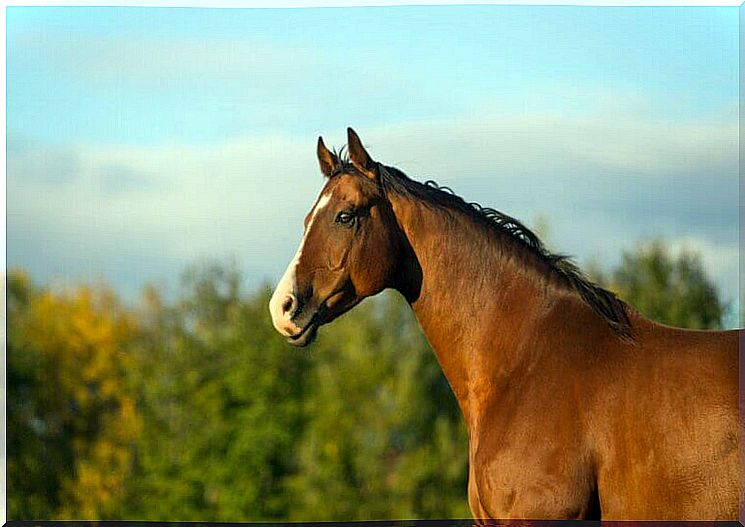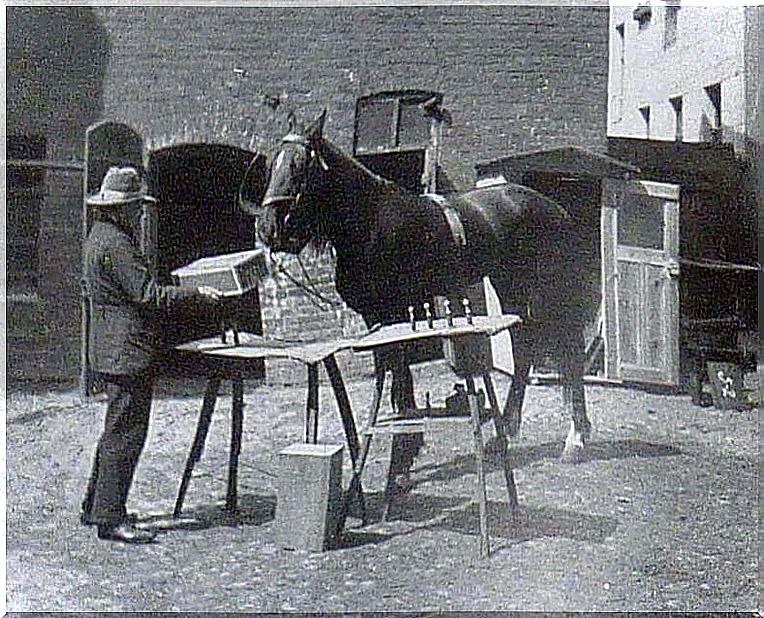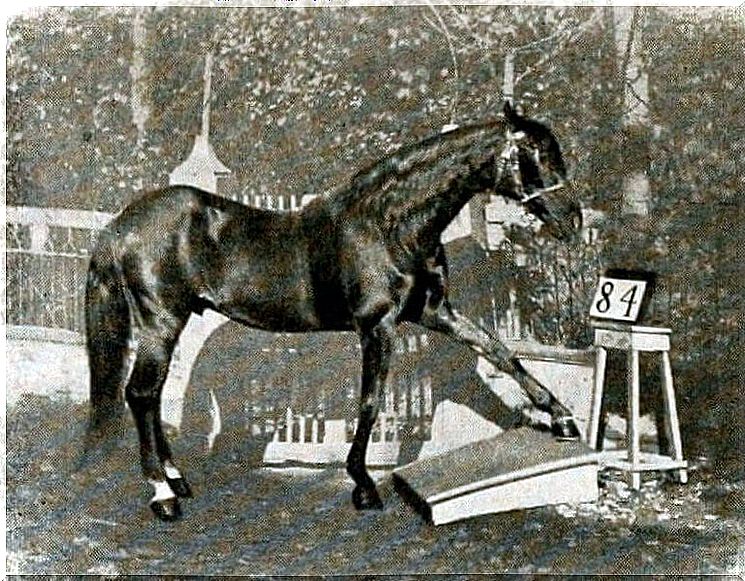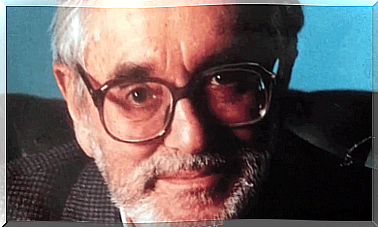Clever Hans, The Horse That Did Operations

Clever Hans, which means ” the clever Hans”, is the name of a famous horse that impressed German society at the turn of the 20th century. This animal made a large number of public presentations in which it had to solve mathematical operations, as well as other types of calculations. He was never wrong.
The fame of Clever Hans spread beyond the borders of Germany. Many articles have been written about it around the world. This horse fascinated everyone indeed. He answered questions by raising his paw and hitting the ground.
The horse became so popular that several songs came to pay homage to it. Toys representing him were also made. Clever Hans therefore became a hero for children. A liqueur was made in his name and, following the “deciphering” of its complex history, there is today a bias known as the Clever Hans effect.

The origin of the Clever Hans story
It all started in the summer of 1904, in a small country house north of Berlin (Germany). A rumor began to spread that a man named retired professor Wilhelm von Osten had a horse smarter than many humans.
To prove this, he periodically gave a performance in which the horse, in addition to trotting with great grace, also made calculations. He also counted people, gave the time and knew the annual calendar.
Hundreds of people testified about the skill of Clever Hans, the intelligent horse. Unable to speak, he answered questions by tapping the ground with his paw or tilting or shaking his head from side to side.
When asked the owner what was the original capacity of the horse, he responded by saying that it ‘s Elev has as one of his students. He gave her lessons with a blackboard and he taught her to count with an abacus. In addition, he instructed her in music with a harmonica.
A suspicion that grew ssa t
While people gave credit to the old master, some scientists did not quite believe in Clever Hans’ remarkable intelligence. The animal aroused such interest that a commission of teachers from the University of Berlin was created to study the phenomenon: the Hans Commission.
Experts traveled to the country house and witnessed the animal’s abilities. They then signed a letter, comprising 13 sections, attesting to the horse’s skills and certifying that the teacher gave him no particular indication that could suspect him of cheating.
Wilhelm von Osten told them that he used a teaching method borrowed from a small nomadic ethnic group, called the Khoikhoi, who lived in Africa. Everyone marveled. An expert pedagogue even went so far as to say that the good Clever Hans had the intelligence of a child of 13 or 14 years.

An in-depth investigation
Psychologist Carl Stumpf decided the phenomenon was worth studying scientifically. He therefore instructed his pupil Oskar Pfungst to examine the horse’s abilities in depth.
The student personally did the tests and, almost by accident, noticed that if he looked at the numbers, Clever was guessing. But if he didn’t know them, the horse wasn’t giving the right answer. Likewise, when he whispered the sum in her ear, the horse was unable to perform the operation.
Pfungst suspected that Clever Hans was picking up a signal from the environment and thus arriving at the correct answers in mathematical operations. The student then found out laughing that Hans was able to “read” the attitude of humans and thus managed to guess.
The interrogators were indeed emitting small bodily signals. They would look at his paws when they hoped he would start counting, then tilt the body when he came up with the correct answer. The interrogator’s posture and expression changed. This is how the horse knew that this was the signal to stop hitting the ground.
It was in fact a case of conditioning. He also revealed how the presence of the researcher can condition the responses of the person concerned. Today we know this bias in the experiment under the name of the Clever Hans effect, in memory of this beautiful animal.










